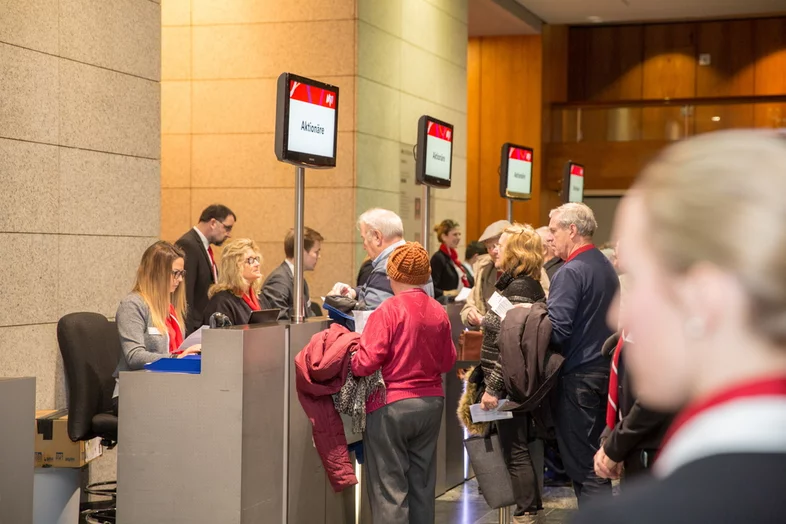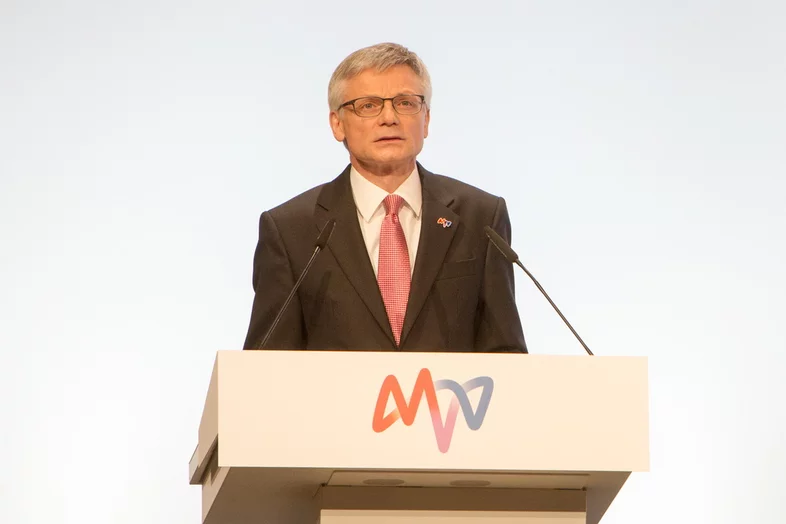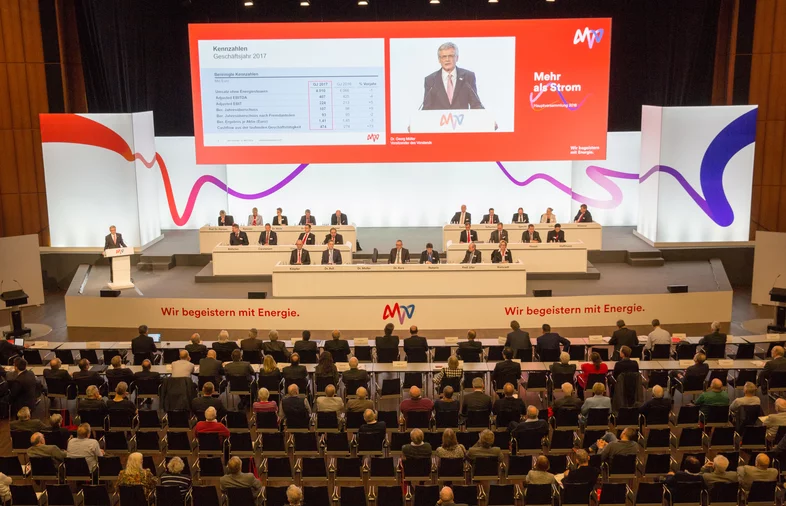MVV combines sustainable implementation of the energy turnaround with robust company growth
At Annual General Meeting, Mannheim energy company reaffirms strategic focus on energy turnaround - Third consecutive year of annual earnings growth - Positive outlook and high pace of investment
The Mannheim-based energy company MVV is combining its strategy, which focuses on sustainably implementing the energy turnaround, with robust growth at the company itself. “We are successfully connecting the energy system of the future with strong earnings”, stressed Dr. Georg Müller, MVV's CEO, at the company’s Annual General Meeting, which was held at Congress Center Rosengarten in Mannheim on Friday. “This success is driven by a triad of factors: our strategy, effective progress in our operations and a forward-looking brand image.” MVV is still consistently investing in expanding renewable energies, boosting combined heat and power generation in conjunction with environmentally-friendly district heating and developing innovative new products and services. “We set out early on this course and are making a success of it”, underlined MVV’s CEO to the meeting, which was attended by just under 1,300 shareholders and guests.
MVV can point to the third consecutive improvement in its operating earnings (adjusted EBIT). Year-on-year, this key figure increased by 5 percent from Euro 213 million to Euro 224 million in the past 2017 financial year (1 October 2016 - 30 September 2017). Sales remained firm at the previous year's level of just over Euro 4 billion. This positive performance was mainly driven by pleasing developments in the environmental energy business, volume-driven growth in electricity sales and the impact of a slightly colder winter than in the previous year.
Adjusted annual net income rose by 9 percent from Euro 98 million to Euro 107 million, while bottom-line profit, i.e. adjusted annual net income after minority interests, showed a slight year-on-year decrease to Euro 93 million. This corresponds to adjusted earnings per share of Euro 1.41, as against Euro 1.45 in the previous year.
Tailwind at the beginning of the 2018 financial year
This positive performance also continued in the 1st quarter of the current 2018 financial year (1 October - 31 December 2017). In the first three months, MVV posted growth in both sales and earnings. Operating earnings rose year-on-year from Euro 115 million to Euro 133 million, while sales grew to more than Euro 1.1 billion. This was particularly due to high electricity feed-in volumes from proprietary wind turbines and successful developments in the renewable energies project development business. The company also profited from one-off items.
“We reported a strong start to the new financial year and benefited quite literally from tailwind”, stressed MVV's CEO at the Annual General Meeting. The company has confirmed its earnings forecast for the financial year as a whole. From an operating perspective, MVV thus expects to generate slight growth both in its sales and in its operating earnings.
Dividend remains unchanged
The Supervisory and Executive Boards have proposed an unchanged dividend of 90 cents per share for the 2017 financial year for approval by the Annual General Meeting. The distribution total once again amounts to Euro 59.3 million, with a dividend yield of around four percent based on the share price at the balance sheet date on 30 September 2017. Dr. Müller: “That is also convincing when compared with other companies. Our share is and will remain a stable investment offering a good return.”
Politicians must press ahead with the energy turnaround
Turning to the energy policy challenges facing the new Federal Government, the CEO of MVV spoke out in favour of stepping up the expansion in renewable energies and further developing the heating energy sector along sustainable lines. He believed that the coalition agreement reached between the CDU/CSU and SPD contained many suitable approaches for pressing ahead with the far-reaching transformation of the energy system already initiated several years ago. “The overall direction is right”, stressed Dr. Müller, but many aspects were still vague and unspecific.
For MVV, onshore wind power is and will remain the key technology for the energy turnaround. “If we are to meet the climate protection targets, then we have to continue with the nationwide expansion in onshore wind power”. For this, Dr. Müller added, only authorised wind projects should be permitted to participate in tenders in future. He also called for additional tender volumes in 2018 and 2019 to quickly correct the erroneous developments resulting from the previous year's tender rounds. Dr. Müller: “The move to competitive, technology-specific tenders is right and has been successful. It has led to significantly lower costs. Having said this, it would make absolutely no sense to halt the expansion precisely when the efforts to enhance efficiency made in previous years are now beginning to take effect.”
For MVV's CEO, the heating energy supply offered another key means to achieve climate targets. Heating energy generation accounts for about a third of Germany’s CO2 emissions. It was therefore important to uphold the various heating energy options available. “Cities need different solutions to rural locations.” District heating was set to play an indispensable role in future as well. Particularly in large built-up areas, district heating grids provided future-proof infrastructure and acted as major energy hubs.
According to Dr. Müller, highly efficient combined heat and power (CHP) generation was the basis for environmentally-friendly district heating. That is why the German CHP Act (KWKG) should also be extended beyond 2022. In parallel, renewable energies and industrial waste heat solutions would also have to be gradually integrated into the heating energy supply.
MVV maintains high pace of investment
MVV's strategic focuses are reflected in its investment programme. In the current 2018 financial year alone, the company will be investing around Euro 300 million in growth and in modernising its plants. The key focus here is on forward-looking investments in the environmental energy business. At its Friesenheimer Insel location in the north of Mannheim, MVV will be investing around Euro 100 million in total in the years ahead to expand its sustainable use of waste. By connecting the combined heat and power plant there to Mannheim's district heating grid, MVV will be making its district heating more renewable and thus more sustainable. At the same time, MVV will be integrating an innovative technology to recycle phosphorous from sewage sludge at this plant. Dr. Müller: “This shows we are at the cutting edge of developments when it comes to using waste to generate energy.”
Furthermore, the company is expanding its involvement in the UK market. In autumn 2017, MVV took over an existing energy from waste plant in the Scottish city of Dundee. This will be operated for around three years until the state-of-the-art and highly efficient waste-fired combined heat and power plant being built in parallel launches operations in 2020.




